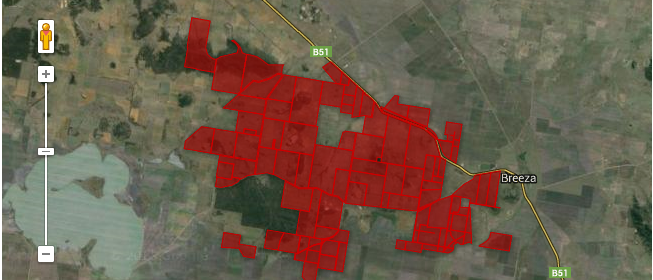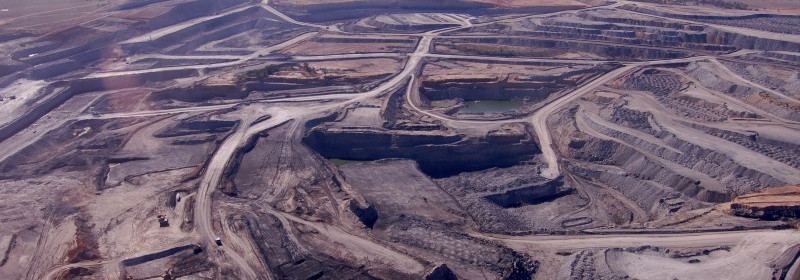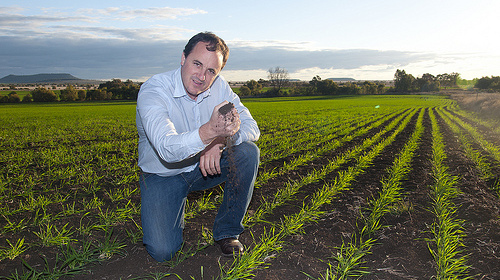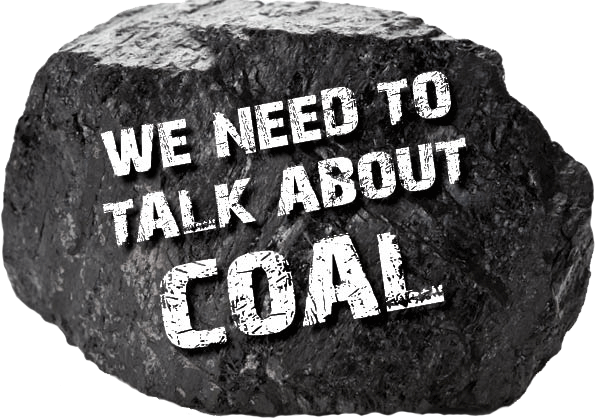MEDIA RELEASE - 11 February 2015
The Greens NSW mining spokesperson Jeremy Buckingham today questioned why the Labor and Liberal Parties were afraid to talk about the future of the thermal coal industry, saying the Greens were the only party willing to grapple with the issue of coal and climate change, and coal’s structural decline after launching the Greens policy for a managed phase out of coal.
“It’s clear that to avoid dangerous climate change we need to phase out thermal coal mining. The question is will NSW do the prudent thing and have a planned and managed phase out strategy for coal, or will we wait for a chaotic collapse of the industry?” asked Greens MP Jeremy Buckingham.
“Scientists conclude that 95% of NSW coal reserves must stay in the ground to avoid dangerous climate change – that’s only three years production at current rates. NSW urgently needs to prepare a strategy to phase out coal and a managed transition to a diversified economy and to provide jobs.
“The Greens call for ‘no new coal mines’ is now moving to a policy of phasing out existing thermal coal mines. A decade of government failure to have a plan to phase out coal has only made the task more urgent and difficult.
“Neither the Coalition nor Labor are willing to face up to the issue of coal and have an honest conversation with voters. It is irresponsible to turn a blind eye to this major climate and energy issue and to just hope and pray that there is no collapse down the line.
“Coal is in structural decline as the world shifts energy sources. Prices are at record lows, many mines are operating at a loss, and the industry is shedding jobs – now less than 20,000 in NSW.
“There will be economic and social consequences of a phase out of coal, but there are also significant and much larger consequences if we ignore the issue.
“Economic analysts around the world are now recognising that all fossil fuel reserves cannot be burnt and some reserves will have to stay in the ground and will be stranded assets.
“The Greens believe it is prudent to draft a phase out strategy for coal that reviews all existing coal mines and takes into account the socio-economic factors of the coal producing regions, balances the impacts and provides direction and assistance to diversify the regional economies into sustainable industries.
“The flip side of phasing out coal is building a large scale renewable energy industry. This will generate considerable employment and economic activity, particularly for regional NSW.
Contact: Max Phillips – 9230 2202 or 0419 444 916
NSW Greens policy initiative
95% of NSW’s coal reserves must remain unburnt to avoid dangerous climate change
Scientists are saying that if we are to avoid dangerous climate change and limit global warming to 2°C throughout the 21st Century then an historic and rapid transition away from fossil fuels is required.
A recent paper published in the journal Nature calculated that in order to have at least a 50% chance of keeping to no more than a 2°C rise in global temperatures, cumulative carbon emissions between 2011 and 2050 must be limited to around 1,100 gigatonnes of CO2 equivalent. The paper surveyed global fossil fuel reserves and calculated a carbon budget of exactly how much of each reserve can be burnt in order to avoid breaching 2 degrees of global warming. The study estimates that for Australia 95% of our coal reserves must be left in the ground.
For NSW this means that only a further 575 million tonnes, or just over three years of production at current rates, of the 11.5 billion tonnes of recoverable coal reserves can be mined and burnt if we are to ensure 95% of our reserves remain in the ground.
Coal is already in structural decline with many mines uneconomic at current prices. A transition away from coal is inevitable, it’s a question of how quickly and how it is managed.
The Greens have a plan for a phase out of existing coal mines.
The Greens plan is to:
- Set a clear limit on remaining coal mining in NSW in line with what scientists conclude we can extract – less than 600 million tonnes of coal in NSW.
- Develop a phase out strategy for phasing out coal mining that accounts for, and balances, the socio-economic impacts of the phase out of the industry.
- Reassess all current coal mining licences and approvals in accordance with remaining coal mining limit, and reduce allocations in line with the phase out strategy.
- Legislate to ensure that no compensation is payable to coal mining and fossil fuel exploration companies. Investors have been aware of the potential impact of addressing climate change on their industry for many decades.
The Greens’ phase out plan for NSW will include:
- An end to all coal exports by 2020;
- A ban on all new coal mines;
- A ban on all fossil fuel exploration;
- Timetable a phase out of existing coal mines;
- A transition package for effected workers and small businesses;
- A rehabilitation package for affected land and water;
- Fast-tracking investment in renewable energy to replace fossil-fuel energy and displaced employment from the coal sector;
- Regional Development plan to provide alternative industries for affected regions.
- An energy efficiency program to reduce business, household and public sector energy consumption.
Labor, Liberals and Nationals are all wedded to coal
The Baird government has nailed its colours to the mast on coal. The government has approved 1.3 billion tonnes of coal mining (2.5 times the total remaining coal budget) since September 2014. This includes the enormously controversial Shenhua Watermark coal mine in the heart of the fertile Liverpool Plains. NSW Farmers Association President Fiona Simson said of the Shenhua approval: “This decision represents a complete policy failure by the NSW Government to protect any of the state’s high value agricultural land and water.”
Premier Mike Baird appeared at NSW Mining dinner and committed to fast-track coal mining approvals. At the dinner Mr Baird said: “I am tonight drawing a line in the sand on this. NSW must do better and I assure you we will” and Planning Minister Pru Goward then provided ‘directions’ to the Planning Assessment Commission.
While Labor promote their position of a moratorium of coal seam gas, Labor are silent on coal mining – refusing to provide comment to journalists. As shadow environment minister, Luke Foley was rumoured to be working on a policy to phase out coal, but backed away from it when confronted a few years ago.
A rising tide against coal
Currently in Australian politics there is a collective cognitive dissonance, where two fundamentally contradictory positions are maintained. The Coalition and Labor state they are committed to reducing emissions to keep global warming under 2 degrees, but at the same time support the continuation and expansion of the coal industry. These two positions are physically incompatible, regardless of what political spin is applied.
As a society we must honestly face these limits and make a plan to shift our energy production to non-fossil fuel sources. To pretend we can continue to mine coal indefinitely is dishonest.
Increasing numbers of people are understand that we must rapidly phase out coal to avoid dangerous levels of climate change. Many scientists, have called for a phase out of coal. Climate scientist, James Hansen the director of NASA’s Goddard Institute for Space Studies wrote in 2009 “coal is the single greatest threat to civilisation and all life on our planet”.
Economists are increasingly assessing the risk of fossil fuel reserves becoming stranded assets. Deutsche Bank Research Haus notes: “To put it plainly, if the currently agreed climate change targets are to be met with any reasonable certainty, over half the proven fossil fuel reserves would have to stay where they are – underground.”
The Greens have been calling for a transition away from coal since at least 2007 when Bob Brown called for a phase out strategy, and the time for action is fast running out. The next term of government will be critical in preparing a transition plan, or else, failing the climate and our children. Inaction will cost trillions of dollars globally, up to a 20 per cent reduction in GDP by the end of this century.
Metallurgical coal and thermal coal
The Greens recognise that metallurgical coal (coking coal) is necessary as a feedstock for making steel. The Greens will work to ensure that greenhouse gas emissions from metallurgical uses of coal are minimised by enforcing world’s best practices in process efficiency; maximising feed-stock recycling; and regulations to require the use of manufactured materials that minimise embodied emissions.
Burning and exporting thermal coal for electricity generation is the main issue and major contributor to emissions and climate change. It is thermal coal that is the focus of this policy.
Like this:
Like Loading...







